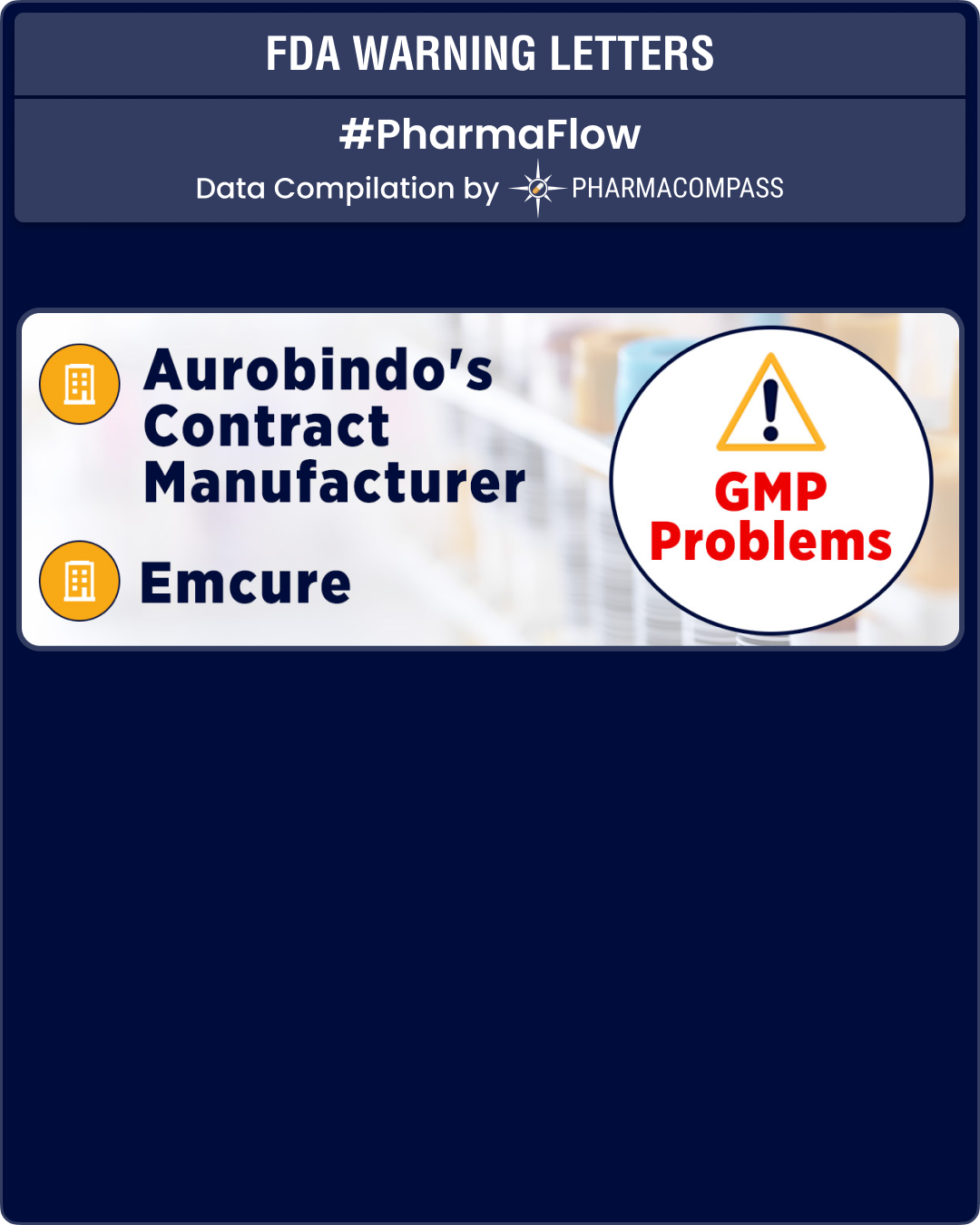
By PharmaCompass
2019-08-15
Impressions: 4245
The US Food and Drug Administration (FDA) is continuing its in-depth investigations into the root-cause of the cancer-causing impurities that were detected in valsartan and other blood pressure medicines last year.
Last month, the FDA posted a warning letter issued to Aurobindo Pharma’s API manufacturing site located in Srikakulam district. Although the warning letter was heavily redacted, there was a clear reference to Aurobindo’s failure to thoroughly investigate concerns with its manufacturing process for valsartan, which was found to contain cancer-causing impurities.
In Aurobindo’s risk assessment, it documented that impurity contamination could have originated from recovered solvents, a process which is undertaken at contract manufacturers like Lantech Pharmaceuticals Limited. The assessment also attributed the contamination to inadequate cleaning procedures at the contract manufacturer.
In its warning letter, the FDA clearly defined that Aurobindo needs to “ensure adequate quality oversight of operations for all contractors performing functions that could affect drug quality.”
Solvents
recovered by Lantech contained NDEA
This week, Lantech Pharmaceuticals Limited, a firm which undertakes contract manufacturing for companies like Aurobindo, was issued a warning letter by the FDA.
The FDA inspection found that Lantech acts as a contract solvent recovery facility for valsartan API manufacturing operations; and also as a contract manufacturer for the API intermediate — lamivudine coupled ester.
In December 2018, a Lantech customer notified the company that solvents recovered by Lantech contained the potential mutagenic impurity — N-Nitrosodiethylamine (NDEA).
In the investigation performed by the company, which was reviewed by the FDA, samples collected from Lantech’s equipment were found to contain mutagenic impurities.
The FDA review also found that the firm did not maintain logbooks or documentation demonstrating product use or cleaning associated with the use of its tanks, which creates a potential for all products manufactured at the facility to contain nitrosamines through mix-ups or cross contamination.
During the inspection, “solid and liquid material of unknown origin” was found at the bottom of a non-dedicated receiving tank and an unknown residue was also observed in the external view glasses of non-dedicated receiving tanks.
Lantech also failed to implement a procedure for investigating unknown peaks in recovered solvent chromatograms observed during analytical testing — an oversight which had led to the cancer-causing impurities not being detected in the ‘sartan’ APIs.
The FDA also raised data-integrity concerns at the facility as it was “routinely deleting recovered solvents gas chromatography (GC) data older than three months permanently, without any backup” and adequate controls.
In an indication that the FDA oversight will continue as it works on mitigating manufacturing risks, the FDA requested a list of all customers for whom Lantech had processed recovered solvents in the previous three years.
Emcure faces another regulatory setback
In 2015, an FDA inspection of Emcure Pharmaceuticals’ sterile manufacturing operations in Pune (India) raised concerns over poor aseptic processing techniques, poor sterilization practices, facility design along with data-integrity concerns.
The FDA placed the plant on an import alert in July 2015 and also issued it a warning letter.
This week, following a February 2019 inspection, the FDA issued the facility another warning letter.
The concerns raised by the FDA relate to the firm’s failure to adequately investigate sterility failures obtained during routine batch release testing. The firm attributed the most probable root cause for its failures to laboratory error and “deemphasized potential manufacturing causes”.
The warning letter highlights that in a previous inspection — from August 7 to 17, 2017 — the FDA had cited similar cGMP (current good manufacturing practices) observations in which Emcure inadequately performed microbiological investigations.
“Repeated failures demonstrate that executive management oversight and control over the manufacture of drugs is inadequate,” states the warning letter.
Although the products manufactured on the site have been on an import alert since 2015, it has exemptions on a few antibiotics and anti-cancer drugs.
The PharmaCompass Newsletter – Sign Up, Stay Ahead
Feedback, help us to improve. Click here
Image Credit : FDA Warning Letters by PharmaCompass is licensed under CC BY 2.0
“ The article is based on the information available in public and which the author believes to be true. The author is not disseminating any information, which the author believes or knows, is confidential or in conflict with the privacy of any person. The views expressed or information supplied through this article is mere opinion and observation of the author. The author does not intend to defame, insult or, cause loss or damage to anyone, in any manner, through this article.”







